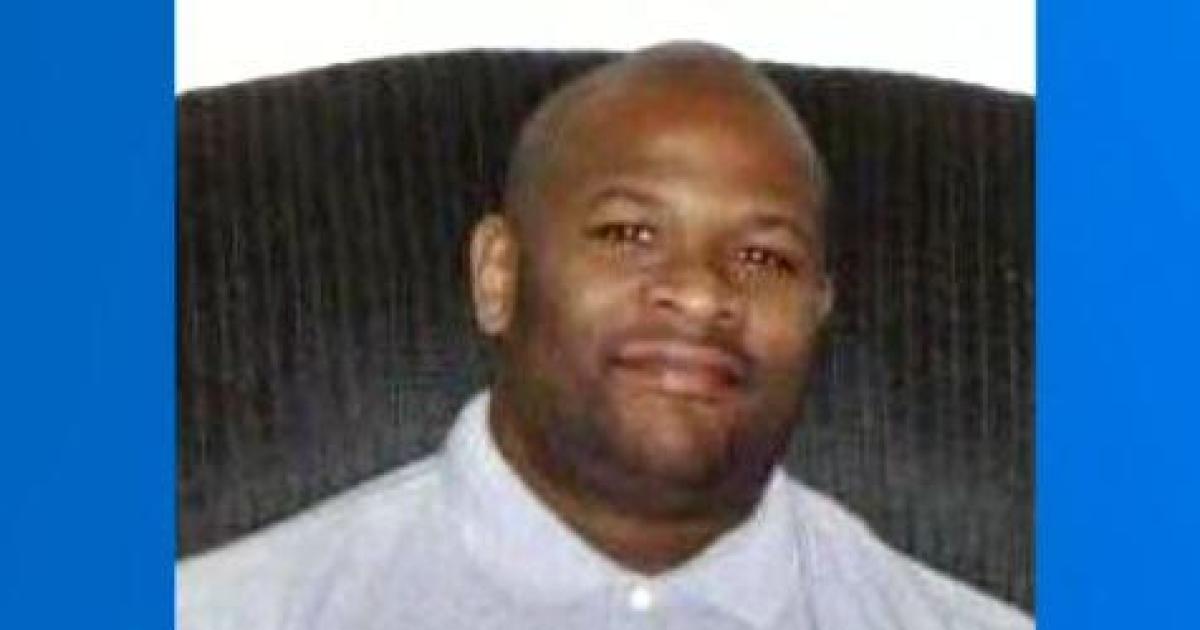Georgia executes 8th person this year
ATLANTA -- Georgia has executed a man who essentially gave up on his case, telling a psychiatrist he didn’t want to die but also didn’t want to continue living in prison.
Authorities say 54-year-old Steven Frederick Spears was pronounced dead at 7:30 p.m. Wednesday following a lethal injection. He was convicted of murder in the August 2001 slaying of his ex-girlfriend, Sherri Holland, at her north Georgia home in Dahlonega, about 65 miles northeast of Atlanta.
A psychiatrist who evaluated Spears this week said he was capable of making a rational decision about whether to fight his execution.
Spears was the eighth inmate executed this year in Georgia, which has executed more inmates than any other state this year, including Texas with seven.
A Georgia Supreme Court summary of the case says Spears killed Holland because he suspected she had been romantically involved with someone else. Spears came up with four separate plans for her death and ultimately killed her by choking her, wrapping tape around her mouth and face and putting a plastic bag over her head, the summary says.
Spears was difficult to defend at trial, refusing to let his attorneys delve into his troubled family history or to suggest he wasn’t of sound mind, his trial attorney Allyn Stockton told The Associated Press last week. He also refused to allow them to pursue any post-conviction appeals and has refused to communicate with Stockton for more than a year.
Kammer filed a petition Monday saying Spears’ constitutional rights were violated during his trial, sentencing and direct appeal and asking a judge to delay his execution to set a hearing on those issues.
The “next friend” petition was filed on behalf of Gwen Thompson, who was identified in the filing as Spears’ ex-wife and the mother of his child. Such a petition is available to someone who has a significant relationship with a death-row inmate who declines to appeal their sentence “due to a mental disease or defect.”
Spears told Butts County Superior Court Judge Thomas Wilson during a hearing Tuesday that he and Thompson were never married and also said he didn’t want to talk to Kammer and that Kammer didn’t represent him, according to a transcript of the hearing. He told the judge it is his right not to pursue post-conviction appeals and that lawyers who are trying to fight his execution now are “trying to force their beliefs on me.”
Robert Shaffer, an expert selected by Kammer, also evaluated Spears on Tuesday and said he didn’t find sufficient evidence of substantial impairment to Spears’ capacity to make a rational choice regarding legal challenges.
Given the findings of both experts, Kammer asked the judge at a hearing Wednesday to dismiss the petition and said lawyers would be standing by Wednesday evening with paperwork for Spears to sign if he changes his mind, according to a transcript.
“Mr. Spears, there are people in your life who care about you. They want you in their life. They love you. Please don’t let it end this way, sir. Please reconsider,” Kammer told Spears in court, according to the transcript.
When asked during the evaluation by Norman if he wanted to die, Spears said, “Not really, but would you want to live in a six by nine cell. That’s not living,” according to the psychiatric evaluation report.
When Norman asked about his refusal to pursue post-conviction appeals, he said, “We’re talking about another ten to fifteen years. I’m not doing that. The process takes so long. It’s what’s wrong with the death penalty. I have another twenty years of appeals,” he said, adding that even if the court were to grant him life with parole it would take a long time and there’s no assurance he’d actually get out of prison.
About 10 percent of executions are imposed on inmates who have voluntarily waived their appellate rights, though Spears would be the first such case in Georgia, said Robert Dunham, executive director of the Death Penalty Information Center, a nonprofit critical of capital punishment’s application that does not take an official stance on it.
“These executions are always problematic because they are cases in which there has not been complete judicial review,” Dunham said, adding that the types of errors that typically result in a death sentence being overturned frequently are unearthed in post-conviction proceedings when a new team of lawyers digs into the case.



